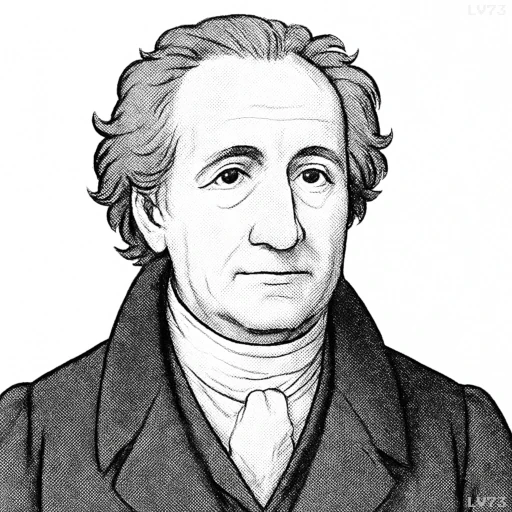“A flippant, frivolous man may ridicule others, may controvert them, scorn them; but he who has any respect for himself seems to have renounced the right of thinking meanly of others.”

- August 28, 1749 – March 22, 1832
- German
- Poet, playwright, novelist, philosopher, politician
table of contents
Quote
“A flippant, frivolous man may ridicule others, may controvert them, scorn them; but he who has any respect for himself seems to have renounced the right of thinking meanly of others.”
Explanation
Goethe contrasts the behavior of a flippant, frivolous individual—someone who dismisses, ridicules, or scorns others—with that of a person who possesses self-respect. The person with true self-worth understands that respect for oneself inherently involves respecting others. A person who values their own dignity and integrity does not find it necessary to look down on others or degrade them. True self-respect requires a mature, humble approach to others, recognizing that belittling others is a reflection of weakness or insecurity, not strength.
Historically, this idea aligns with the philosophical traditions that value integrity and humility. Throughout history, thinkers have often suggested that those who are truly wise or virtuous do not need to tear others down in order to elevate themselves. Goethe, living in an era where social status and prestige were significant, likely saw the act of scorning others as both a sign of arrogance and self-doubt, not true confidence or dignity. Those who genuinely respect themselves understand that respect for others is essential to maintaining their own integrity.
In modern contexts, this idea applies to how we view self-esteem and emotional intelligence. In the workplace, for example, a leader or colleague with self-respect treats others with dignity, fostering an environment of mutual respect and collaboration, rather than belittling or mocking others to assert authority. Similarly, in personal relationships, those who have strong self-worth do not need to cut others down or engage in judgmental behavior. Instead, they understand that true strength lies in lifting others up and maintaining a respectful and positive attitude toward those around them.
Goethe’s words remind us that self-respect is not just about valuing ourselves, but about extending that respect to others. The ability to respect others, without diminishing or ridiculing them, is a key aspect of true personal dignity and maturity.
Would you like to share your impressions or related stories about this quote in the comments section?




